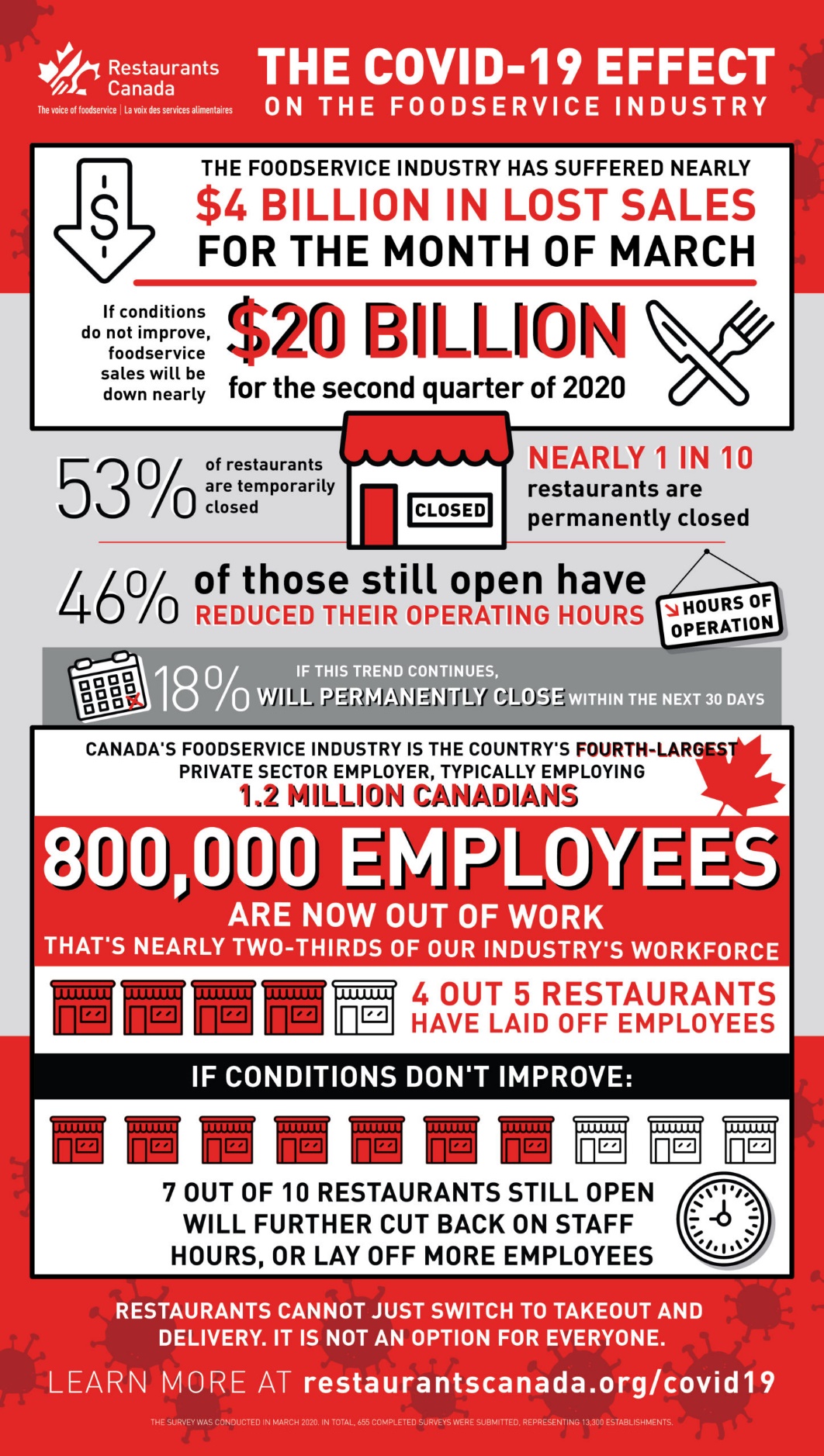While some industries will bounceback, the outlook isn't good for thousands of foodservice workers and businesses

Under normal circumstances, who doesn’t enjoy eating out at a restaurant? But choices will be more limited once the coronavirus restrictions are eventually lifted.
And for thousands of food service workers, the weeks ahead are uncertain as businesses close, not just for now, but for good, putting longer-term pressure on household incomes.
New figures from industry association Restaurants Canada show that 800,000 workers have lost their jobs in the food service industry since March 1. Four out of five restaurants have laid off staff and 7 in 10 will cut back further if the COVID-19 pandemic does not ease.
But these are not workers on furlough, they have been laid off, with almost one in ten restaurants already closed permanently and many more likely to close within a month.
“Not only was our industry among the first to feel the impacts of COVID-19, we’ve been one of the hardest hit so far, with nearly two thirds of our workforce now lost,” said Shanna Munro, Restaurants Canada President and CEO. “In our 75 years of existence as Canada’s national foodservice association, these are by far the worst numbers we have ever seen.”
Canada’s foodservice industry is worth $93 billion, or 4% of GDP, but Restaurants Canada says the hit to the industry in the second quarter of 2020 will be nearly $20 billion if things don’t improve.
Help welcomed
Government assistance for the foodservice industry has been welcomed.
“Without the steps already taken, the impacts on our industry would be even more devastating,” said David Lefebvre, Restaurants Canada Vice President, Federal and Quebec. “In this time of crisis, it is reassuring to see governments, at all levels, come to the table with solutions.”
But the industry also needs help from investors, including those who may be able to inject working capital into businesses, and landlords who might be open to rent-free periods to help foodservice businesses make it through the current tough conditions.




